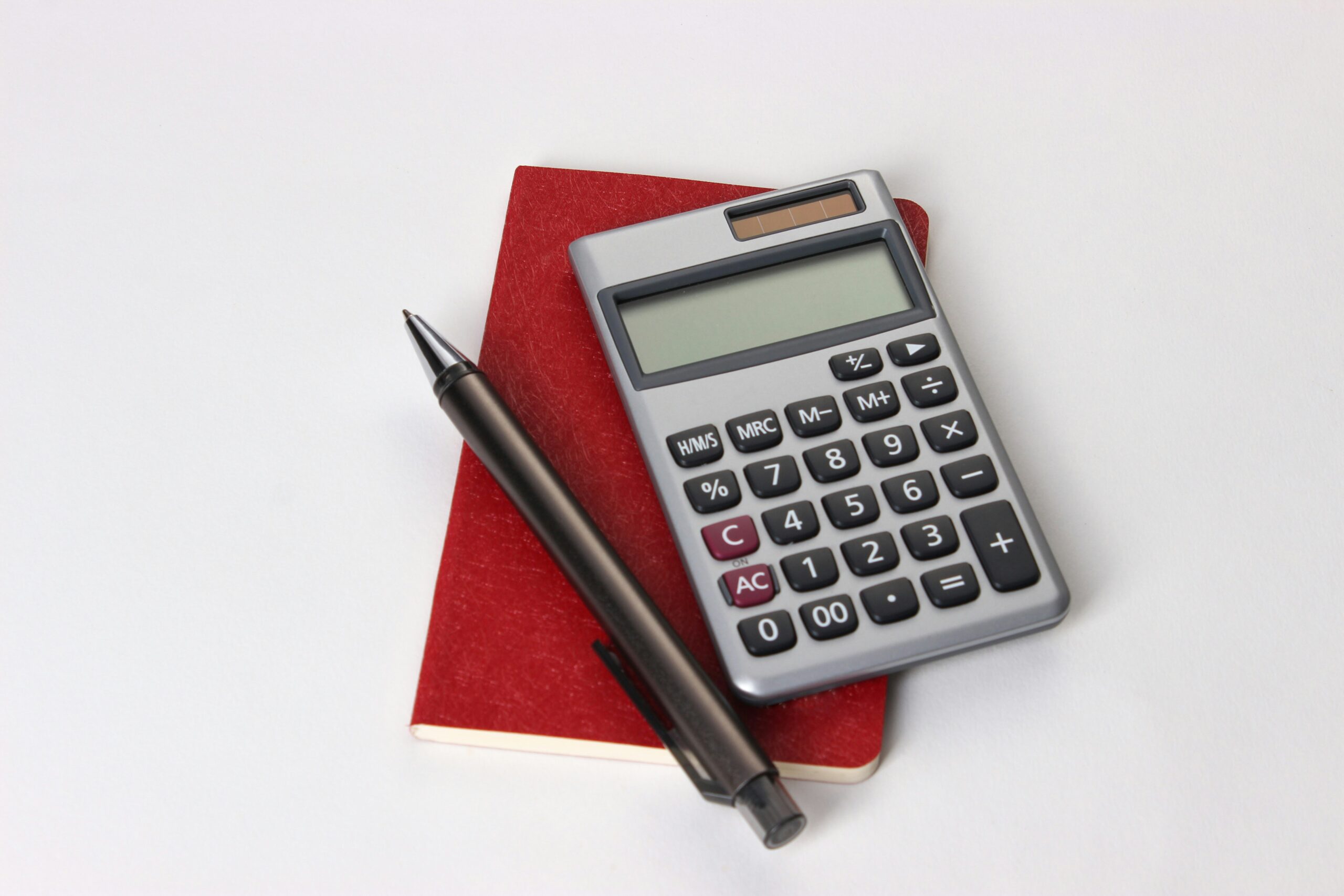- Tax Benefits
- Income Tax
- VAT and Special Tax Regimes
- Small Business Classification
- Calculating Tax Liability
- Micro-Foncier
- Taxation of Lodgings Income
- Taxe Foncière: The Local French Property Tax
- The French Taxe d’Habitation for a Second Home or Vacation Property
- Tax on Furnished Rental Properties: Cotisation Foncière des Entreprises (CFE)
- The French Wealth Tax on Real Estate
- Capital Gains Tax on Properties in France
- Tax on Rental Income in France for non-residents
- Furnished Rentals: What’s new in 2024?
France has two property taxes – the taxe d’habitation and the taxe foncière.
The tenant who lives at the property pays the taxe d’habitation, while the landlord pays the property ownership tax, the taxe foncière.
Tax Benefits
Professional landlords enjoy tax advantages, such as:
- They can offset losses against their total income, not just from furnished rentals;
- Exemption from wealth tax on rental properties;
- Concessions on capital gains tax with exemption after running the business for at least five years;
- Evaluating the property as a business asset potentially leads to concessions on inheritance tax.
Income Tax
Landlords have three options for income taxation on profits from furnished accommodations: micro-enterprise, régime reel, and micro-fiscal for those registered as micro-entrepreneurs.
Note: Under certain conditions, you may be exempt from taxes on rental income from renting out a room in your home.
VAT and Special Tax Regimes
VAT applies only when you provide at least three of these services to tenants: breakfast, daily cleaning service, reception service, and linen service.
Professional and non-professional renters are subject to the same regulations.
Generally, the rate is 10%; however, furnished rentals of residential properties are free from VAT.
VAT is only applicable in the following cases:
- Furnished rooms with amenities comparable to those provided by hotels;
- Leasing of vacant space to hotel establishment operators;
- Staying in tourist hotels or categorized apartments.
- There is a VAT exemption on furnished rentals when the lessor’s total rent for the prior year did not exceed €82,800 (excluding taxes).
Small Business Classification
In France, Micro-Entreprise is a simplified tax status designed for small businesses, including individual entrepreneurs and landlords. This system streamlines reporting and paying taxes on earnings from sources such as rental income.
Unlike business structures, a Micro Enterprise does not require registration procedures. This simplicity makes it an appealing choice for earning income from rentals without the complexities of establishing a full-fledged business entity.
The micro classification provides tax benefits for those exploring furnished lettings, including gites and chambres d’hôtes (i.e., holiday homes and bed and breakfast accommodations). However, demand can vary, so assessing your strategy for the best outcome is critical.
As a small landlord renting in France, you usually don’t have to register your business. Especially if you’re dealing with properties that are not furnished. However, if you dive into short-term holiday rentals, be prepared to handle some registration tasks.
Calculating Tax Liability
Taxes are not based on annual revenue (gross income from rentals). Instead, landlords receive a fixed percentage allowance that reduces the taxable base. This deduction accounts for expenses, so landlords don’t need to detail or justify expenses.
Real Regime
The Real Regime is particularly beneficial for landlords whose expenses exceed the percentage deductions offered under the Micro Enterprise regime.
This approach may be more favorable for landlords with high operating costs. It allows them to decrease income more efficiently than through fixed deductions:
-
- Ideal for landlords whose eligible costs exceed 30% of gross rental income or those who earn over €15,000 annually from rental income.
-
- It enables deducting a deficit from taxable income up to €10,700 per year with specific guidelines on handling loan interest.
Deductible Costs
Under the Real Regime, you can deduct a wide range of expenses.
These expenses include, but are not limited to:
-
- Expenses associated with managing and operating rental properties, such as property management services.
-
- Costs for insurance plans that cover the property, including liability coverage and property damage protection.
-
- Any taxes imposed by authorities specifically linked to the property, such as property taxes.
-
- Interest payments on mortgages or loans obtained for acquiring, repairing, or improving the property, excluding loan principal repayments.
Strategic Considerations
Deciding between Micro Entreprise and Régime Réel depends on situations considering costs related to rental earnings. While Régime Réel requires record-keeping and accounting efforts, it can provide tax benefits for landlords with significant deductible expenses, enabling them to make informed choices. However, do not underestimate the effort needed for this tax system.
Tip: This system best suits landlords with access to an accountant or accounting expertise.
You can find more details on the official government website.
Micro-Foncier
France’s ‘Micro Foncier’ tax system explicitly targets landlords renting out unfurnished properties. This system simplifies the process of reporting income for small-scale landlords by using a flat-rate deduction to cover expenses, making tax calculations less complicated.
The Micro Foncier system targets landlords whose annual gross rental income from unfurnished properties is under €15,000.
Landlords earning more than this threshold from unfurnished properties must explore other taxation options, such as the Régime Réel.
Under the Micro Foncier system, you apply a 30% deduction to your income to determine taxable income. After applying this deduction, you pay taxes on 70% of your gross rental income.
Landlords with operating expenses (below 30% of income) may find the Micro Foncier system beneficial due to its simplicity and the lack of need to keep track of expenses. However, if costs regularly exceed this percentage, choosing the Régime Réel could lead to a lower taxable income due to the ability to deduct actual costs.
Taxation of Lodgings Income
Owners renting out furnished rooms in their homes can benefit from an exemption from income tax, social security contributions, and business rates on the income these lodgings receive. To qualify for this exception, two critical conditions must be met:
1. Primary Residence Requirement
The rented property should function as the residence for both the tenant and the landlord. This condition promotes genuine home-sharing arrangements rather than commercial rental activities.
Lettings to students who reside away from their permanent home for studies qualify for this concession. The lease acknowledges the property as the student’s primary residence during the academic term.
When tenants are employed under work contracts, their accommodation does not need to be their residence. This flexibility accommodates employment patterns.
2. Maximum Rental Limitation
The yearly rental amount must not surpass a government-determined limit to qualify for the tax exemption. Authorities adjust these limits annually to align with economic conditions and housing market trends.
For the year 2024, the maximum rental limits are as follows:
-
- €206 per meter per year in the Ile de France region.
-
-
€152 per meter per year in regions of France.
-
For instance, with this exemption, the monthly rent for a 20 square meter space in Ile de France would be €4,120.
Exceptions
These restrictions specifically pertain to the rent. They exclude charges for additional services like meals, laundry, and electricity from these thresholds.
Reporting and Taxation
If a landlord’s rental arrangements fall within these boundaries, they don’t have to report this income on their tax returns, making tax compliance more manageable.
This exemption from taxing income highlights the government’s endorsement of shared housing and promoting affordable living spaces.
For more detailed information, please check the French government website.
Taxe Foncière: The Local French Property Tax
The first tax system, the taxe foncière, typically applies to all homeowners. It is determined by deducting the property’s notional rental value. The local Centre des Impôts Fonciers notifies all householders in the area of the exact tax rates, which differ between regions.
The taxe foncière does not apply to residents who are over 75, occupy the property as their principal residence, and either qualify for state benefits or have low incomes. Typically, new construction properties are excluded for the first two years.
Authorities calculate this tax on January 1 based on an assessment of the nominal rental value, which often does not correlate with actual rental income. Actually, notional rental values are linked to an index initially published in 1970.
The particulars may provide an estimate of the taxe foncière liability if you are purchasing a home; on average, the cost per square meter is between €9 and €20 (£9 to £17) per year.
The French Taxe d’Habitation for a Second Home or Vacation Property
Due to reforms implemented in July 2023, this tax is now only due on properties, not the owner’s primary residence. The calculation works similarly to the taxe foncière, using a notional rental value.
Most second homeowners pay a rate comparable to that payable under the taxe foncière system. At the same time, some exemptions and thresholds could cause the tax amount to vary.
For instance, owners of second properties with children may be eligible for housing tax relief, with discounts ranging from 10% to 15% for each child.
The regular income tax rates apply to rental income from a French property, starting at 11% for annual earnings over €11,294. For incomes over €177,106, there are an additional 17.2% social levies and higher income tax rates of 45%.
Tax on Furnished Rental Properties: Cotisation Foncière des Entreprises (CFE)
A tax known as CFE is imposed on homeowners who rent out furnished real estate as a business. CFE, or “property tax on companies,” is determined by the property’s rental value and is paid yearly, much like the other two tax categories.
Generally, owners of furnished rental homes are exempt if their annual income is less than €5,000. Keep in mind that CFE fees do not apply to second homeowners who own unfurnished vacation or rental properties.
The French Wealth Tax on Real Estate
The French tax system imposes the Impôt sur la Fortune Immobilière (IFI), an annual wealth tax based on the value of your real estate holdings. You might be responsible if you hold real estate assets valued at €1.3 million or more. However, properties are only assessed for IFI if valued at €800,000 or more; anything less is not subject to taxes.
The valuation determines the IFI tax rate. Most wealthy property owners pay a 0.5% tax rate on properties worth up to €1.3 million, with progressive increases up to an upper limit of 1.5% for property assets worth €10 million or more.
IFI may be due from non-residents who own properties in France; however, only real estate located in France is subject to assessment. Tax residents’ entire global property holdings will be considered for IFI evaluation. Similarly, all real estate types are covered, including primary, secondary, investment, and rental properties. For IFI, you may deduct 30% from the assessed value of your primary residence.
Foreign nationals who become residents of France for the first five years will be assessed for IFI solely on their French properties. After that, all global real estate assets are included in the calculations.
Capital Gains Tax on Properties in France
Primary residences are exempt from the French capital gains tax system. Therefore, if you own and live in France at the time of sale, you will often not be charged capital gains tax. Depending on the circumstances, you might be able to claim an exemption if you were not residing in the property on the sale date but were during the previous 12 months.
A capital gains tax obligation may arise from other real estate assets if their value increases above their initial purchase price. The capital gains rate is usually 19%; however, there may be additional social charges, usually 17.2%. The amount gained determines progressively increasing surcharges; earnings over €50,000 —and rising to 6% if the net gain exceeds €260,000 —are subject to an extra 2% social charge.
Social charges also cease to apply after you have owned the property for five years and are waived if you have held the property for thirty years or more. You may be eligible for a capital gains tax if you reinvest the gain to buy a primary dwelling and haven’t held a habitual home in France for the last four years.
Tax on rental income in France for non-residents
Depending on whether you are a non-resident who resides on the mainland most of the year or a French tax resident who spends part of the year in France, you may be subject to different tax costs.
Foreign nationals are generally subject to the IFI wealth tax, taxe d’habitation on a second residence, income taxes on French rental income, capital gains taxes, and taxe foncière. On the other hand, if they have an S1 healthcare certificate, they might be eligible to pay a lower social charge rate of 7.5%.
Many non-residents struggle with French property taxes. This French property tax guide for non-residents covers everything you need to know about your tax requirements.
Filing an income tax return online for non-residents
For all queries about your personal tax situation, you can contact the Non-Resident Personal Income Tax Office:
For individuals: by phone at +33 1 72 95 20 42
And professional users: by phone at +33 1 72 95 20 31
Alternatively, you can find details on the government website or check out other helpful guides.
Tax purposes for French residents
You must complete your first income tax return on paper using form N°2042.
You may submit tax return online the following year after receiving login details to create a personal account on the official tax website.
Note: In 2024, online reporting for French residents is mandatory if your home is connected to the Internet. Otherwise, you can use a paper form.
Furnished Rentals: What’s new in 2024?
Declaration d’Occupation
As of 2023, all property owners must complete a new French tax declaration called the Declaration d’Occupation, which details the occupancy status of their property or properties. All real estate owners in France, including those who own second homes or are not residents and are normally exempt from filing a French tax return, must make this one-time declaration.
You must fill out this form if you own any type of property in France, regardless of whether you reside there, use it as a second home, rent it out, or pay taxes there. Whether you pay Taxe d’Habitation or not, you must complete it.
The only exceptions are owners of commercial properties and businesses, such as stores or full-time gites/holiday home businesses. These properties are registered as businesses and are therefore exempt from paying the Taxe d’Habitation.
This exclusion does not apply if your property is not a registered business and is a vacation or second home that is periodically rented out as a gite or Airbnb. You can do this online by logging into your personal space on the impots.gouv.fr website.
However, if you’re unsure, it’s best to inquire with your local tax office.
The Loi Pinel
The Loi Pinel is an amendment to the French Tax Code to encourage private investment in new rental housing. The law offers a tax incentive to landlords who buy new properties and agree to rent them out for 6, 9, or 12 years.
Here are the key features of the Loi Pinel:
Tax Reduction:
12% reduction for a 6-year commitment,
18% reduction for a 9-year commitment,
21% reduction for a 12-year commitment.
Eligibility: The properties must be new or thoroughly renovated to meet specific energy and performance criteria.
Rental Conditions: The property must be rented out as a primary residence, and the rent must be capped at an affordable rate to middle-income tenants.
Loi Pinel has been extended several times, most recently until December 2024.
Discover more about Rental Investment Pinel/Duflot Law (tax reduction).
Discover what it takes to become a successful landlord in France.
Please note: This article does not constitute legal advice – the information on this page has been prepared solely for your information. As we are not a law firm and act as a platform, we can and may share our estimations, but we cannot give you legal advice for your individual further proceedings.









